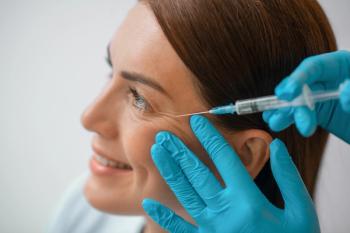
- Technology Pipeline: Aesthetic Authority Vol. 2: No. 1
- Volume 2
- Issue 1
Pandemic Aside, Many Report Financial Success in 2020. Now What?
Although the pandemic brought uncertainty for many physicians and medical practices, many report financial success in 2020.
Not all aesthetic practices and medical spas survived the shutdowns in 2020, but many of those that did report better business overall in 2020 than the previous year.
The question now becomes, how do practices and spas remain successful through 2021?
From Surviving to Thriving
The American Med Spa Association (AmSpa) surveyed members about impact of COVID-19 on their practice in December 2020. Findings from the survey of 85 respondents show nearly 11% permanently closed their medical practices in 2020 and more than 18% of all respondents permanently laid off employees due to the pandemic. More than 30% in the med spa industry saw 2020 revenues fall compared with the previous year, according to AmSpa.1
Also reported in the survey, 56% of respondents did either as well as or better in 2020 compared with 2019. Nearly 62% of respondents expect 2021 revenue to increase by more than 10%, citing phenomenon such as the “Zoom effect” to fueling future business.2
Alex R. Thiersch, founder and CEO of AmSpa and an attorney with Dallas, Texas-based law firm ByrdAdatto, says he estimates 10% to 15% of US med spas closed permanently due to the pandemic.
“The flip side to that is that we are also seeing businesses that were able to survive the initial closure that are doing incredibly well on the back end,” Thiersch says. “Twenty-two percent of med spas that responded to our survey increased their revenue by more than 10% from 2019.”
E. Gaylon McCollough, MD, FACS, a facial plastic surgeon for 48 years, has a large private practice in Gulf Shores, Alabama. The McCollough Plastic Surgery Clinic has its own operating and recovery rooms and a med spa that bills itself as a skin center. In response to governmental mandates, the practice and its closely linked skin center and total health spa stopped performing elective surgeries for a month in 2020, which McCollough admits is a shorter shutdown than for many states.
“We still saw new consults and some long-term post-op patients during that period of time, so we never closed our place down completely,” McCollough says. “Immediately after that moratorium was lifted, because our surgical practice is closely aligned with our skin center and total health spa, we saw a tremendous upsurge in the amount of surgery. We were very, very busy in April and May, and [financially] we have had a really good year. That experience has carried over into 2021.”
Plastic surgeon Jason N. Pozner, MD, FACS, Sanctuary Plastic Surgery, Boca Raton, Florida, says that business has been nonstop since his practice shut down for 6 weeks last year.
“Business is booming,” according to facial plastic and reconstructive surgeon S. Randolph Waldman, MD, Waldman Schantz Turner Plastic Surgery Center and Skin Care, Lexington, Kentucky, and Aesthetic Authority® medical adviser, who says his practice’s 2020 financials exceeded those from 2019.
Possible Keys to Success
Businesses that were well-capitalized, well run, established, closely aligned with a surgical enhancement practice, and had funds on hand, as well as those that were able to obtain Paycheck Protection Program loans3, were able to come back stronger than ever, according to Thiersch.
Practices and med spas that responded strongly to safety concerns were also more successful in overcoming pandemic challenges.
When the pandemic started, McCollough’s staff sent out an email blast to patients and referring physicians outlining the practice’s plan to exercise an abundance of caution, he says.
“People know that when they come to the clinic, they will have to wear a mask and will have to keep it on until they leave unless we are examining a part of the face that the mask covers,” McCollough says. “Staff wear masks. We have a policy of social distancing. When patients come in the door … we do a little bit of screening. My staff asks questions about the patient’s current state of health, as well as that of family members and friends. They have also been told that if they hear or witness someone coughing or sneezing in the waiting room, they’re not to bring them back. We test our staff, and we also test all the patients who come for surgery. If someone tests positive, their surgery is postponed until they are no longer positive and free of symptoms for 2 weeks.”
As of February 2021, none of his approximately 10 patients who have tested positive required hospitalization nor has anyone on his staff of 15 has tested positive for COVID-19.
Articles in this issue
almost 5 years ago
New Fat Grafting and Harvesting Technologyalmost 5 years ago
Advances in Body Contouring Technologyalmost 5 years ago
1 Year Into COVID-19almost 5 years ago
Technology Pipeline: Aesthetic Authority Vol. 2: No. 1almost 5 years ago
Avoiding COVID-19 Vaccine Legal Hurdlesalmost 5 years ago
EON in the Practicealmost 5 years ago
Rollout Begins for EON Touchless Fat Reduction Devicealmost 5 years ago
Radiofrequency vs Surgery for Eye, NeckNewsletter
Like what you’re reading? Subscribe to Dermatology Times for weekly updates on therapies, innovations, and real-world practice tips.











